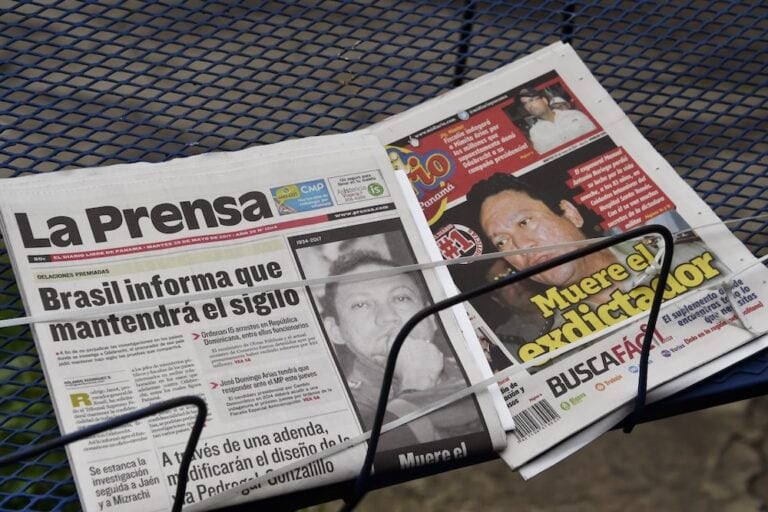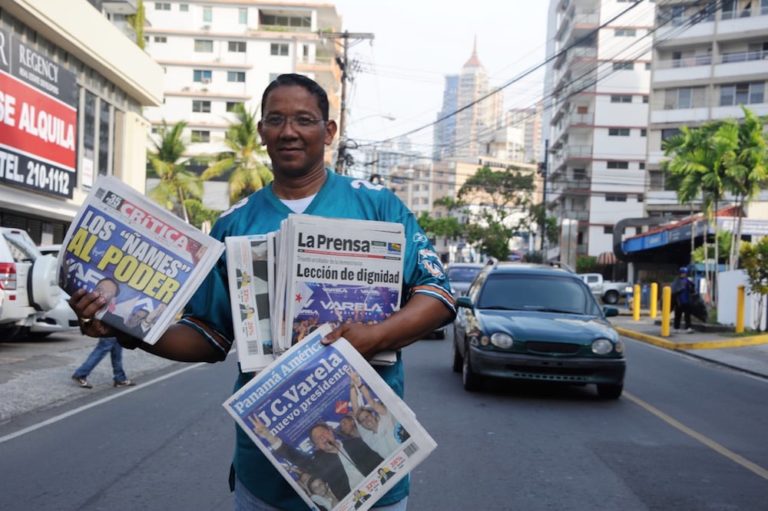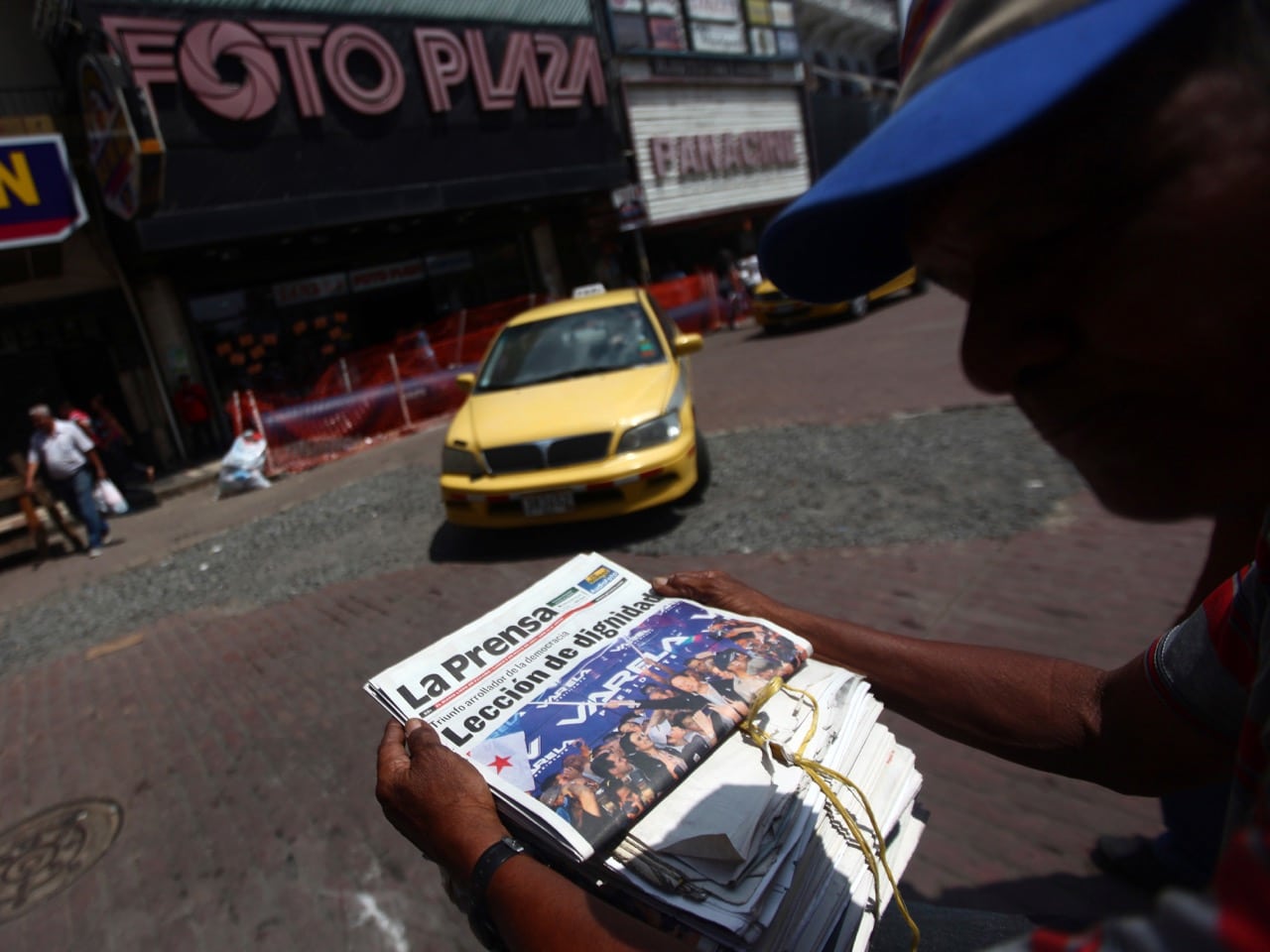(RSF/IFEX) – The following is a 12 March 2007 RSF letter to the president of Panama: HE Martín Torrijos President of Panama Dear Mr. President, The National Assembly approved a package of amendments to the criminal code in a plenary session on 6 March. It now falls to you to promulgate the amendments within a […]
(RSF/IFEX) – The following is a 12 March 2007 RSF letter to the president of Panama:
HE Martín Torrijos
President of Panama
Dear Mr. President,
The National Assembly approved a package of amendments to the criminal code in a plenary session on 6 March. It now falls to you to promulgate the amendments within a 30-day period beginning on 10 March.
Reporters Without Borders, an international organisation that defends press freedom worldwide, would like to alert you to two of the 400 amendments, which pose a danger to press freedom and which have been strongly criticised by the Panamanian media (see our release of 9 February). We are referring to articles 164 and 422 of the new legislation.
Article 164: “Anyone legitimately coming into possession of private or personal mail, recordings or documents – not intended for publication, even if addressed to that person – who makes them public without the required permission and which results in harm, will be punished by 200 to 500 days of fines or weekend imprisonment”.
Article 422: “Anyone guilty of revealing secrets which they hold as a result of official responsibility or contract or allowing others access to them, will be punished with a sentence of six months to one year in prison or its equivalent in daily fines or weekend imprisonment”.
The first of these articles is an incitement to self-censorship, as nothing prevents a source from subsequently turning on the journalist originally entrusted with information. The second threatens the access of journalists to sensitive information by imposing silence on potential sources of information from the outset. Both articles seriously jeopardise the ability of the press to fulfil the role it is supposed to play in a democracy. We therefore hope you will veto them.
We thank you in advance for giving this request your careful consideration.
Respectfully,
Robert Ménard
Secretary-General


